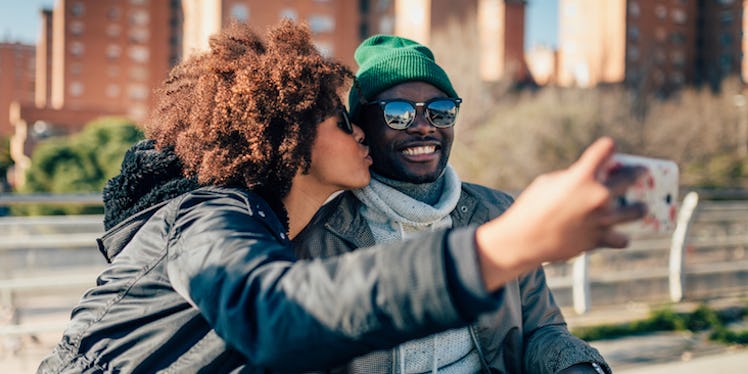
Here's Exactly How To Tell The Difference Between Love And Infatuation
There is a major difference between love and lust.
Lust and desire lead to infatuation, a temporary but very intense emotion that can oftentimes disguise itself as love. Believe me, I've been there a million times.
I've had so many one-month relationships where the breakups burned more severely than my long-term ones, just because infatuation is that strong of a feeling.
Infatuation is a wolf in sheep's clothing. It sneaks into your relationship and makes you think you've met the one, only to have things blow up in your face before your romance has even gotten off the ground.
And that's because infatuation is just a fantasy. Love is a reality. But how can you spot the difference?
I reached out to Dating and Relationship Coach Monica Parikh of the School of Love NYC (she also has a 28-day course on how to attract your best relationship) to lay out the difference between love and infatuation.
"Infatuation happens quickly. Love is slow."
That relationship I had where the guy asked me to be his girlfriend on the second date, and we said "I love you" one week in? Yeah, unsurprisingly, it didn't last, and now, we've blocked one another on every form of social media.
Yikes.
"Infatuation begs for an instant relationship. Love understands that true intimacy is developed over a long time and through many seasons of life," Parikh says.
In order to be in a relationship with someone, you're going to have to withstand the good, the bad, and the ugly. You can't gauge that from just a few dates with someone. And if you think you can read someone from just one dinner, you're most likely basing it on attraction alone.
"Infatuation seeks to control. Love is when you cede control."
If your relationship is built on infatuation or lust, your partner might be jealous, controlling, or possessive.
Parikh explains, "In infatuation, you want your partner to do what you want when you want it. But, love understands that we are all autonomous beings seeking our individual fulfillment, which may not perfectly align to your vision."
A healthy relationship involves two complete people with full lives. I don't know about you, but I've changed my wardrobe for men, abandoned my friends, and incorporated myself completely into my BF's life. I even started slacking at work in order to pay attention to my guy.
But someone who loves you will want you to be happy and thrive independently, so you can succeed as a couple. Infatuation just wants to control you.
"Infatuation can make you hurtful. Love makes you want to heal."
Ever want to seek revenge on an ex? Hook up with their friends? Talk sh*t about them in public? Key their car?
Yeah, that's infatuation.
"When infatuation ends, you may seek revenge or be mired in jealousy. Love makes you want to heal childhood wounds and other dysfunctions, so you can be a better person for your partner and the relationship," Parikh says.
If you find yourself doing a lot of self-work after a breakup or even during your relationship, then most likely, you are making healthy choices for yourself.
If you find yourself egging your ex's or your boyfriend's house, well... that is another story.
"Infatuation is mired in resentment. Love forgives."
In a loving relationship, disagreements actually make you stronger as a couple. You learn good communication skills, and trust, vulnerability, and authenticity can deepen the relationship.
"In infatuation, when one partner hurts the other, the trauma pulls apart the relationship. In love, each partner sees the trauma as the catalyst for deeper intimacy and understanding," Parikh explains.
"Infatuation grows out of desire. Love grows out of friendship."
"Infatuation grows out of desire," Parikh explains.
That guy you had amazing sex with who you immediately thought was going to be your husband? Yeah, pause on that.
Relationships — healthy, long-term ones — are usually built on something a little bit more substantial than a good kiss or great sex.
"Infatuation is mired in surface-level attraction -- looks, money, power. Love grows out of an appreciation of the other person's character," she continues.
So next time you're questioning if your relationship is a fantasy or a reality, it might be time to ask yourself these questions. Or if you have a friend who is doubting his or her own relationship, it might be time to send this article along.